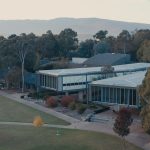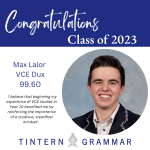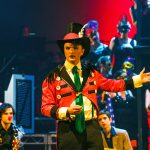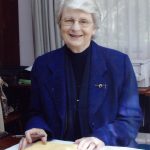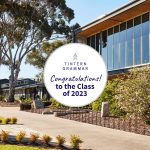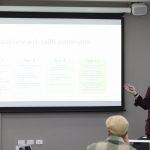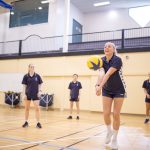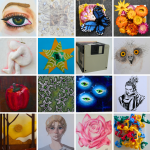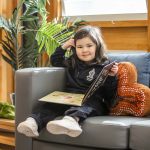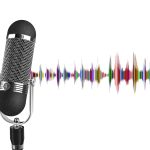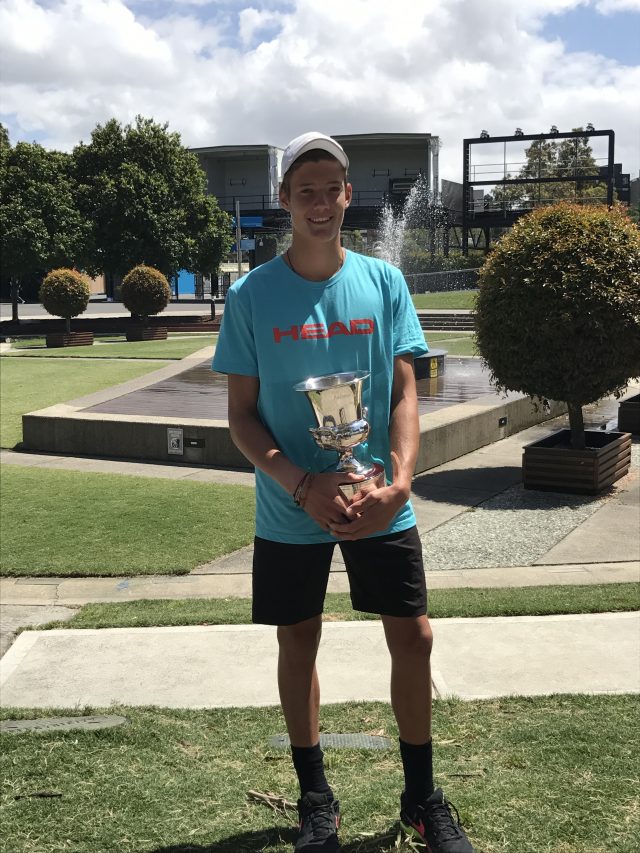
Meet Matthew Dellavedova – Year 11 student and Tennis Australia’s 2016 Under 16s Nationals Winner
Have you received the 2017 edition of Factis magazine? You may recall reading an interview with Year 11 student Matthew Dellavedova, who earlier this year competed in the Australian Open Junior Boys’ Tournament! Enjoy the full interview with Matt below.
The Tintern Grammar community had a close eye on the Australian Open Junior Boys’ tournament in January this year as we cheered on Year 11 student Matthew Dellavedova. Matt then headed to Europe for five months to compete in the European ATP Futures circuit. We caught up with Matt in between his hectic schedule of training, competing and of course school work!
You competed in the Australian Open Boys’ Juniors tournament in January, congratulations! How did you find the experience?
I was lucky enough to get a wildcard into the main draw [of the Juniors Tournament], which meant I could skip qualifying. The whole experience was great. The atmosphere of a Grand Slam, even if it’s a Junior Grand Slam was something I’ve never experienced before. With 500 people there watching me play, the whole atmosphere and environment was really great. And also being surrounded by the best juniors in the world, which I’ve never really experienced before. So it was a good indication to see where I am at on the world scale.
Did your family and friends come watch you play?
Yes, I had my dad, who’s my coach, and there were family and friends there. Mr Kenny showed up too. There were people I didn’t even know who were supporting me because I’m a fellow Australian. They were yelling out my name and cheering me on, the whole environment and atmosphere got me amped, it was really fun.
How did you get into tennis?
My dad was an ex-professional, so I followed in his footsteps. I started off with group lessons when I was about six years old and kept on doing that, as well as playing a few other sports, but tennis was my main interest. By the end of Grade 3 I said to my dad that I wanted to take it more seriously and from that point onwards it’s been full steam ahead with modified school programs and long days on the court.
Do you have any idols in the tennis world and why do you look up to them?
I’d have to say Roger Federer. He has always been my favourite player since I was a kid. On and off the court he displays himself in a clean, responsible manner which makes him the perfect athlete. He has done a lot for the sport of tennis as well. He would be someone I would like to model myself on.
You are currently in Spain and have been travelling around Europe competing. What have you been up to?
We started off with friends who live in Germany. I trained there and got used to Europe, got a feel for my game. Then we went to Madrid for our first tournament. Now I’ve played three tournaments in Spain, and I’ve got one more. So it’s one month in Spain and then I go to Italy for another month, then back to Germany. The tournaments are all ATP Futures, which are low-level pro tournaments, basically a transition to the big stuff. After that it will be a mixture of Germany and France for eight to nine weeks. That adds up to about four to five months overseas and then I come back to Australia.
How have you found the experience overseas so far?
I went to Europe in 2014 with Tennis Australia and a group of boys for six weeks. It’s relatively similar but I find Spain tougher – Spain is where you’ll find the toughest tennis in the world [at the ATP Futures level]. That’s something that’s noticeable. Also the language barrier. You forget that in Australia it is easy to communicate and then when you go overseas you ask a simple question, and they have no idea what you’re saying. The weather is great in Spain. We haven’t seen a cloud in about three weeks. I like travelling, so I am finding it a good experience at the moment.
What achievements are you most proud of in your career so far?
One would be winning the December Showdown under 16s Nationals, which is the biggest nationals event in Australia. That was a big achievement for me. The other would be picking up my first ATP points in Queensland last year, which made me the only 2000 birth year player to have ATP points at that time. To come through qualifying and to win a round against a guy I had lost to three times previously was definitely a good feeling.
With training, competing and school work, how do you juggle it all and what does the School do to help?
My days are pretty full on. I wake up, have morning exercises to do, then breakfast and training – spending all day at the courts. You can’t take school books to the court, so I train all day and then go to a gym session. I come home, do recovery – which means mobility exercises and stretching. And then there is time for school work. The teachers I’ve got are great, they don’t put too much pressure on me to get the work back straight away. With my teachers being as supportive as they are it makes it a lot easier for me.
What are you working towards next?
So this trip to Europe is all about development. It’s the hardest place in the world to pick up points, so it makes you the best player you can be. My goal is to develop as much as I can over here and when I get back to Australia, for the Australian Futures, to be good enough to make a really big impact. There is quite a big drop-off from Europe to Australia, so if I am competing well here, I’m going to do well there [Australia]. So back to Australia, make a really big impact and get a few really good results, which will grant me entry into the Wildcard playoff. This is a qualifying tournament to win a wildcard into the Australian Open main draw, not Juniors. There is a lot of development to go but that’s my end of year goal.
If someone was looking to get into tennis, what should they do?
They should find a local club and have some group lessons. For little kids Tennis Australia’s Hot Shots program is good. They use modified tennis balls which are flatter and softer, as well as a modified net. There are drills they do to develop younger kid’s skills, this helps them to have more rallies and get a feel for the racquet in their hand.
